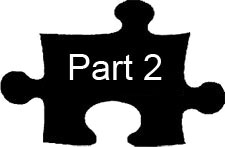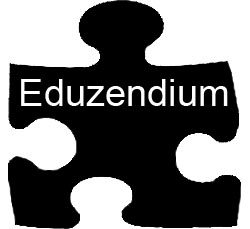


Eduzendium, Civic Engagement, and the Possibilities for Student Writers
AH: The journal in which this interview will appear is Kairos: A Journal of Rhetoric, Technology, and Pedagogy. Most of its contributors and readers are teachers of writing who are concerned with writing with technology. There’s also interest in wikis as collaborative writing spaces. Many of us have backgrounds in classical rhetoric, so the idea of civility and public spaces and civic engagement interests us as well. Of course, as teachers of writing, we see the trend in our students to go to Wikipedia lacking the understanding that it should be a place to begin research, not the end-all-and-be-all of research. Is there anything you’d like to say to this audience?
LS: I find it so fascinating what a huge variety of fields is interested in Wikipedia, and not just Wikipedia, but basically the stuff that I do generally. (Laughs) I’m not saying that it has anything with me, personally. I happen to have gotten into this field that is on everybody’s minds. There are people in rhetoric and communication but then there’s also library and information science, philosophers, and there’s people in computers and in future studies/futurology. You name it. It’s quite strange.
AH: For teachers of writing who might be interested in getting their students involved in collaborative, community writing, would you consider Citizendium be a good outlet for this kind of project? If so, would you elaborate?
LS: Absolutely. If you’ve got a lot of writing students, especially if their writing is at all serviceable, we would be delighted to have people use Citizendium and, in particular, our Eduzendium project. Eduzendium is essentially Citizendium for college teachers. There are those who’ve actually used Wikipedia as a way of giving a certain kind of assignment. You can do the same kind of thing with Citizendium.
Teachers can choose topics they want students to write about. Students can come onto the website and usually will get a little bit of help, anyway. The program has been pretty well received, and we’ve had participation from half-a-dozen or more university classes. One of the nice things about working on Citizendium instead of Wikipedia is that the topics are wide open.
AH: So student contributors are not going to run into any snobbery, such as, “Oh, that’s not an appropriate topic for Citizendium”?
LS: No, because we assume that the instructor, being an expert in his or her field, will know appropriate topics in the field.
AH: Would Eduzendium be an acceptable venue for a first-year writing class—a class whose focus is learning to write and writing to learn?
LS: I think it could be. I think it sort of depends on the class. If a person really has difficulty putting a sentence together, then that’s not going to work. Most college freshmen are able to write well enough that we can improve their work, and they can improve their work.
I would say that most rhetoric and writing teachers could consider us as an option for a creative, new kind of assignment. There’s various ways that they could use it, actually. If they specifically wanted to teach collaborative writing, but wanted to do it in a more civil place than Wikipedia, then Citizendium is actually perfect.